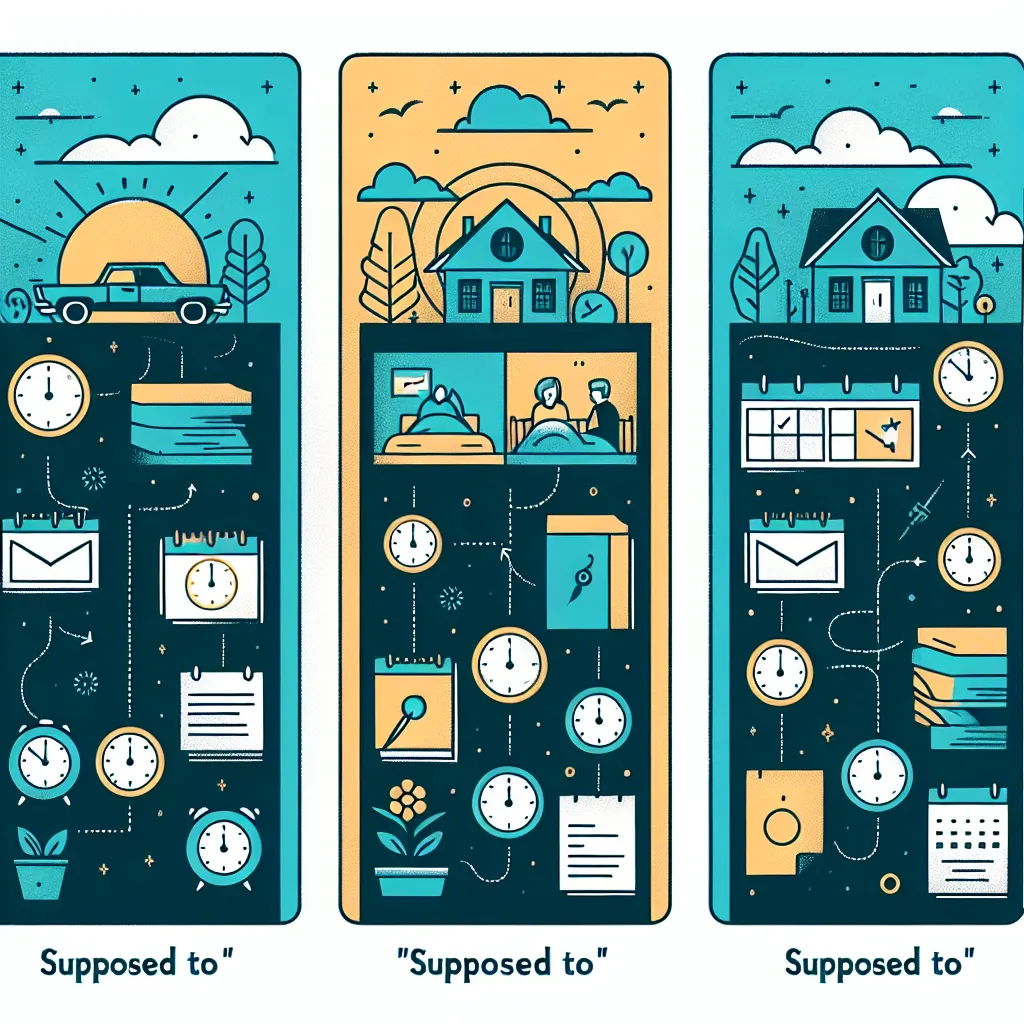Understanding how to use “supposed to” in the past tense is crucial for IELTS test-takers aiming to enhance their grammar skills. This structure frequently appears in various sections of the IELTS exam, particularly in Writing and Speaking tasks. Let’s delve into the intricacies of this grammatical concept and explore how to effectively utilize it in your IELTS preparation.
The Meaning and Frequency of “Supposed to” in Past Tense
“Supposed to” in the past tense is used to express expectations, obligations, or plans that were intended but may not have actually happened in the past. This structure is commonly encountered in IELTS reading passages and listening scripts, as well as being a useful tool for candidates to express themselves in writing and speaking tasks.
Examples:
- “The train was supposed to arrive at 9 PM, but it was delayed by an hour.”
- “We were supposed to meet at the library, but she never showed up.”
- “The project was supposed to be completed last week, but we encountered some unforeseen obstacles.”

Grammar Formula and Usage
The basic formula for using “supposed to” in the past tense is:
Subject + was/were + supposed to + base form of verb
This structure is particularly useful in IELTS Writing Task 2 and Speaking Part 2, where you might need to discuss past expectations or plans that didn’t materialize.
Application in IELTS Writing
In IELTS Writing Task 2, you can use this structure to discuss societal expectations or historical events. For example:
“In the past, women were supposed to stay at home and take care of the family, but modern society has largely moved away from this expectation.”
Application in IELTS Speaking
During the IELTS Speaking test, particularly in Part 2 where you’re asked to describe a past event, this structure can be very useful:
“I’m going to tell you about a time when I missed an important appointment. I was supposed to meet my professor at 2 PM for a crucial discussion about my thesis, but I completely forgot about it until it was too late.”
Sample Passages and Sentences
Here are some examples of how to incorporate “supposed to” in past tense into your IELTS responses:
-
Writing Task 2 (Education topic):
“Traditionally, education was supposed to prepare students for the job market, but nowadays, many argue that it should focus more on personal development and critical thinking skills.” -
Speaking Part 3 (Technology topic):
“Technology was supposed to make our lives easier, but in some ways, it has made things more complicated. For instance, we’re now expected to be available 24/7 due to smartphones.” -
Writing Task 1 (Graph description):
“According to the projection, sales were supposed to increase by 50% between 2010 and 2015, but the actual figures show only a 30% rise.” -
Speaking Part 2 (Describing a disappointing experience):
“The concert was supposed to start at 8 PM, but due to technical issues, it didn’t begin until almost 10 PM. We were supposed to enjoy a three-hour show, but it ended up being cut short.” -
Writing Task 2 (Environmental topic):
“The international agreement was supposed to reduce carbon emissions by 20% over five years, but many countries failed to meet their targets.”
Achieving Higher Band Scores
To achieve higher band scores in IELTS, it’s important to use this structure accurately and in context. Here’s how you can elevate your usage:
-
Band 6: Basic use of the structure
“The meeting was supposed to happen yesterday.” -
Band 7: More complex sentences
“The meeting that was supposed to take place yesterday was postponed due to unforeseen circumstances.” -
Band 8-9: Sophisticated use with other advanced structures
“Had the meeting, which was supposed to address the budgetary concerns, not been cancelled at the last minute, we might have avoided the current financial predicament.”
Common Mistakes to Avoid
-
Using the wrong form of “be”:
Incorrect: “I was supposed to went to the party.”
Correct: “I was supposed to go to the party.” -
Confusing with “should have”:
Incorrect: “He was supposed to studied harder.”
Correct: “He was supposed to study harder.” or “He should have studied harder.” -
Using in present context:
Incorrect: “I was supposed to meet him tomorrow.”
Correct: “I am supposed to meet him tomorrow.” -
Forgetting to change the tense in reported speech:
Incorrect: “She said she is supposed to finish the report by Friday.”
Correct: “She said she was supposed to finish the report by Friday.” -
Using with passive voice incorrectly:
Incorrect: “The task was supposed to been completed yesterday.”
Correct: “The task was supposed to be completed yesterday.”
Conclusion
Mastering the use of “supposed to” in the past tense can significantly enhance your performance in the IELTS exam. It allows you to express past expectations, plans, and obligations more accurately and sophisticatedly. Practice using this structure in various contexts, and remember to avoid common mistakes. As you prepare for your IELTS test, try incorporating this structure into your writing and speaking practice, especially when discussing topics related to changes in society, personal experiences, or historical events.
To further improve your skills, consider practicing with past IELTS questions that might require the use of this structure, such as describing a plan that didn’t work out or discussing societal changes over time. Remember, the key to success in IELTS is not just knowing the grammar, but applying it effectively and naturally in your responses.